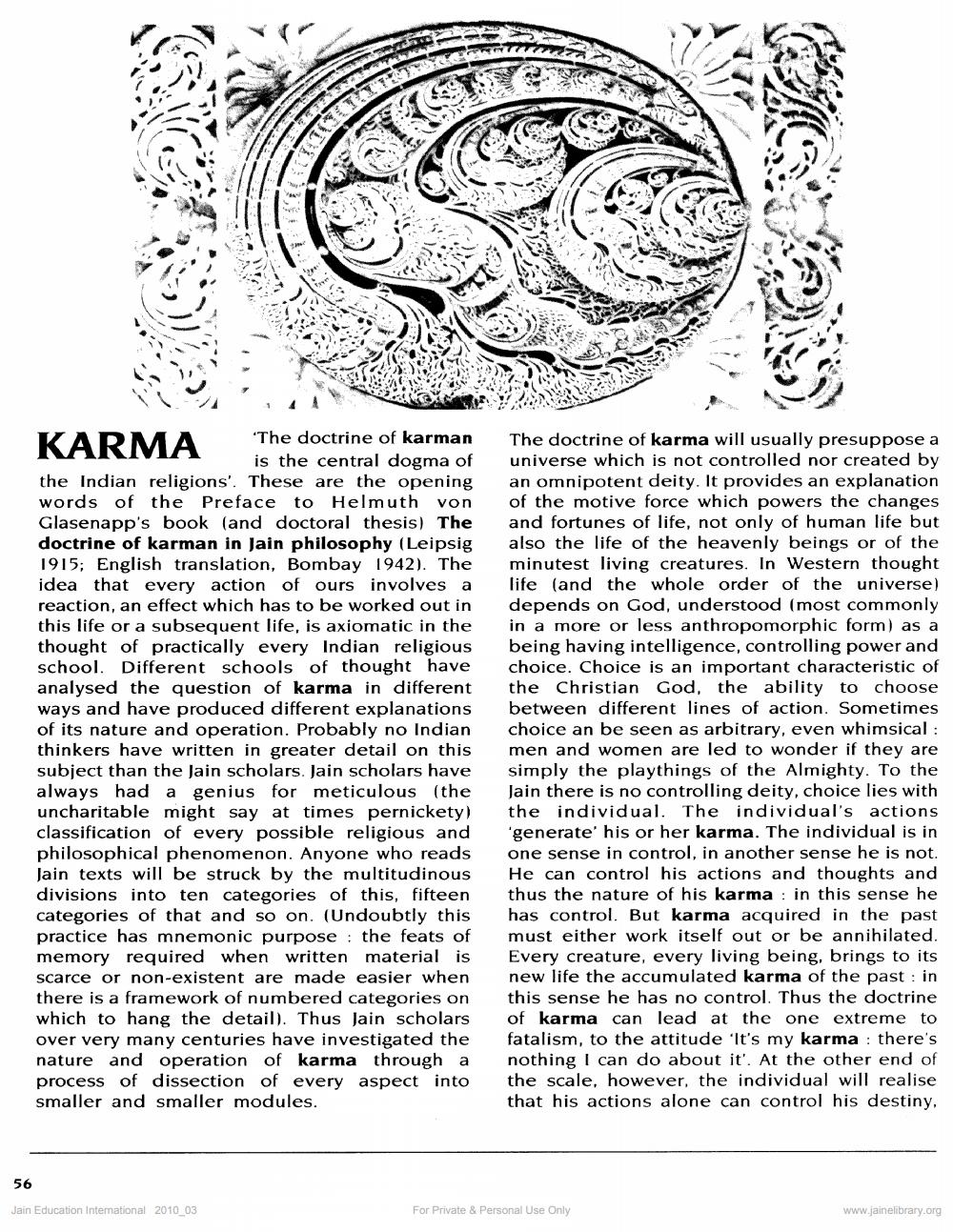________________
ETT
SAS
KARMA
'The doctrine of karman
is the central dogma of the Indian religions'. These are the opening words of the Preface to Helmuth von Glasenapp's book (and doctoral thesis) The doctrine of karman in Jain philosophy (Leipsig 1915; English translation, Bombay 1942). The idea that every action of ours involves a reaction, an effect which has to be worked out in this life or a subsequent life, is axiomatic in the thought of practically every Indian religious school. Different schools of thought have analysed the question of karma in different ways and have produced different explanations of its nature and operation. Probably no Indian thinkers have written in greater detail on this subject than the Jain scholars. Jain scholars have always had a genius for meticulous (the uncharitable might say at times pernickety) classification of every possible religious and philosophical phenomenon. Anyone who reads Jain texts will be struck by the multitudinous divisions into ten categories of this, fifteen categories of that and so on. (Undoubtly this practice has mnemonic purpose : the feats of memory required when written material is scarce or non-existent are made easier when there is a framework of numbered categories on which to hang the detail). Thus Jain scholars over very many centuries have investigated the nature and operation of karma through a process of dissection of every aspect into smaller and smaller modules.
The doctrine of karma will usually presuppose a universe which is not controlled nor created by an omnipotent deity. It provides an explanation of the motive force which powers the changes and fortunes of life, not only of human life but also the life of the heavenly beings or of the minutest living creatures. In Western thought life (and the whole order of the universe) depends on God, understood (most commonly in a more or less anthropomorphic form) as a being having intelligence, controlling power and choice. Choice is an important characteristic of the Christian God, the ability to choose between different lines of action. Sometimes choice an be seen as arbitrary, even whimsical : men and women are led to wonder if they are simply the playthings of the Almighty. To the Jain there is no controlling deity, choice lies with the individual. The individual's actions generate his or her karma. The individual is in one sense in control, in another sense he is not. He can control his actions and thoughts and thus the nature of his karma : in this sense he has control. But karma acquired in the past must either work itself out or be annihilated. Every creature, every living being, brings to its new life the accumulated karma of the past : in this sense he has no control. Thus the doctrine of karma can lead at the one extreme to fatalism, to the attitude 'It's my karma : there's nothing I can do about it'. At the other end of the scale, however, the individual will realise that his actions alone can control his destiny,
Jain Education Interational 2010_03
For Private & Personal Use Only
www.jainelibrary.org




